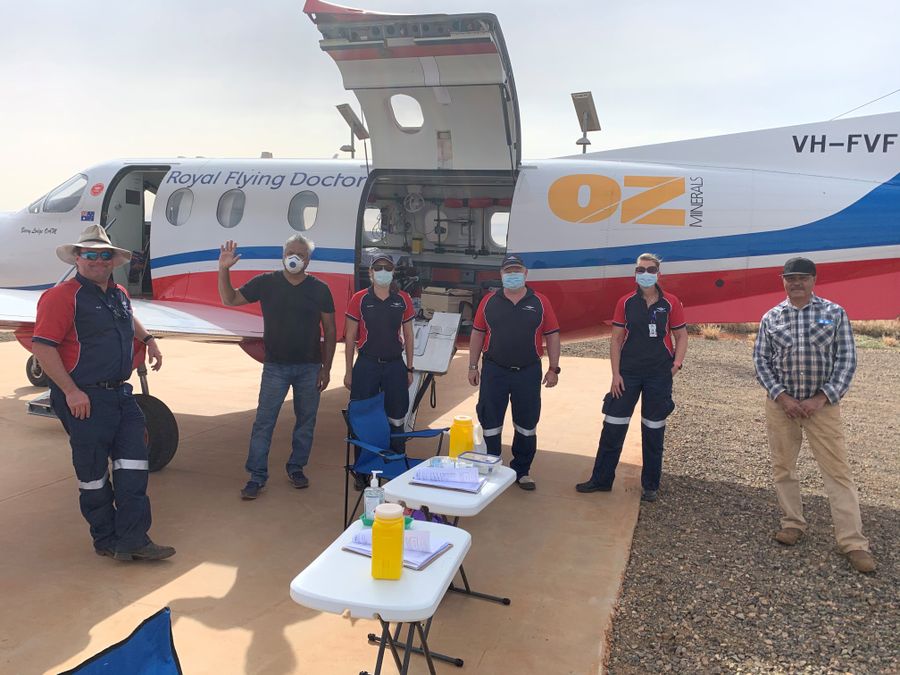
The RFDS became the first aeromedical organisation to manage a positive COVID-19 case on Australian soil in February, as it helped airlift infected patients from the Diamond Princess cruise ship docked in Darwin to cities across the nation.
As commercial flights around the country were grounded by the COVID-19 pandemic, the RFDS stepped in to also transport vital pathology tests for SA and NT health departments, along with flying important medical specialists to patients throughout the country.
“Most people were working out how to run away from the pandemic, but we had to work out how to run toward it safely,” Chief Executive of RFDS Central Operations Tony Vaughan ASM said.
The Service pulled together a national RFDS COVID-19 Taskforce when the first whispers of a global pandemic emerged in February and Mr Vaughan was asked to lead the response.
From where Doctor Jessica Martyn was based, finishing her training as a specialist GP with the Australian Defence Force, she could see the Flying Doctor stepping up as the impacts of the pandemic spread.
“There was important forward planning for all scenarios of how COVID-19 could impact rural and remote patients from cattle stations to Indigenous communities,” Dr Martyn said.
It was this coordinated frontline response that motivated Dr Martyn to join the Flying Doctor team at RFDS Port Augusta Base and ensure she was on the frontline dealing with the virus.
She was among two new doctors, two nurses and four pilots employed with Commonwealth Government COVID-19 Response funding as cases spread across Australia.
First steps for the new national response involved an immediate centralised purchasing of vital PPE so hundreds of thousands of essential protective masks and gowns could be stockpiled to ensure RFDS staff could continue providing essential health care to the country’s furthest corners.
A standby aircraft charter service was rapidly established for oil and gas and mining companies to swiftly assist with moving suspected COVID-19 employees from remote locations.
Mr Vaughan said a new specialist cleaning team was employed to free up clinical staff from comprehensive aircraft cleaning in retrieval turn arounds.
And a $2 million donation by Mrs Gina Rinehart and the Rinehart Foundation helped with the immediate purchase of extra vital medical equipment including heart monitors, defibrillators, ventilators and IV infusion pumps across all SA/NT aeromedical bases and remote clinics.
In the space of five months RFDS crews airlifted 69 confirmed or suspected COVID-19 patients in SA and NT, but also continued to deliver vital emergency and primary health care to remote and rural communities.
“The efforts of Steve Cameron in leading the Incident Management Team (IMT) and Dr Mardi Steere in leading the Medical Retrieval Service during this pandemic has been exemplary,” Mr Vaughan said.
“The Flying Doctor maintained its mantle of care despite numerous challenges in crossing borders, visiting remote communities and being hyper aware of the impacts of social contact,” Mr Vaughan said.

Dr Jessica Martyn (centre) at an Anangu Pitjantjatjara Yankunytjatjara (APY) Lands flu vaccination clinic.

